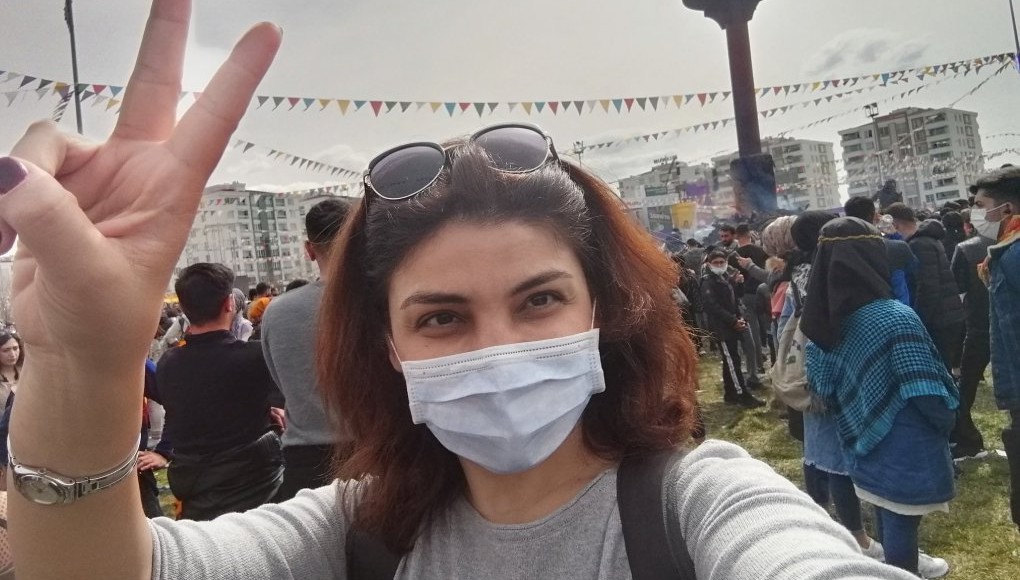In a landmark decision Turkey’s Constitutional Court has ruled that a travel ban imposed on a human rights activist constituted a violation of her freedom of expression, the İstanbul-based Media and Law Studies Association announced.
The top court’s decision concerns activist and lawyer Nurcan Kaya, who had been detained in 2019 at an İstanbul airport when she was about to take a flight abroad to attend a United Nations meeting, part of an investigation into her posts on social media due to which she was accused of “inciting hatred and enmity among the people.” She was released from police custody under judicial control measures, which included a travel ban. Prosecutors decided to drop the investigation into Kaya in June 2020.
Following another investigation stemming from her tweets, Kaya was tried and given a prison sentence of 15 months in 2021 on charges of disseminating the propaganda of a terrorist organization in some of her social media posts. Kaya had been put under judicial control for one-and-a-half months, which again included a travel ban.
The MLSA’s legal unit took Kaya’s case to the top court, claiming that the activist had been subjected to rights violations due to the travel bans imposed on her.
The Constitutional Court acknowledged that the imposition of judicial control due to Kaya’s social media posts had a deterrent effect on her willingness to engage in public discourse. The court awarded Kaya 13,500 Turkish lira ($427) in non-pecuniary damages.
The court also said the travel ban had a significant punitive effect on her, especially considering her role in international human rights activities. It criticized the local court for failing to consider less restrictive alternatives before imposing the travel ban and for dismissing an appeal against the ban on vague grounds.
Lawyer Veysel Ok, co-director of the MLSA, commenting on the top court’s decision, said Turkish courts have increasingly imposed arbitrary judicial control measures on journalists, lawyers and politicians, especially in cases involving news and information sharing.
He said these measures are often resorted to in the absence of sufficient grounds. Ok said the Constitutional Court’s decision on Kaya sets a precedent that judges must consider when making decisions on judicial control, reiterating the need for concrete reasons and discussions for such measures, which he called “a form of detention.”
Ok also highlighted the impact of this ruling on numerous journalists who have been deprived of their right to travel and report due to their professional activities. He stressed the importance of individual appeals against such measures in safeguarding freedom of expression.
In her tweets Kaya criticized Turkish military operations in the country’s southeast against the outlawed Kurdistan Workers’ Party (PKK), listed as a terrorist organization by Turkey and much of the international community, and the military operations against Kurdish militant groups in northern Syria.
Turkish courts frequently resort to judicial control measures, which include a travel ban and regularly checking in at a police station, for people who are investigated or prosecuted on politically motivated charges, which many say constitute a violation of their right to freedom of movement.

